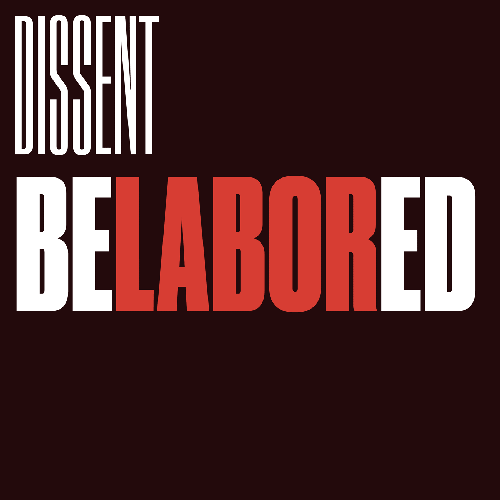
Blog

Why Is Assessing Job Satisfaction So Hard? at the New York Times
Alina Tugend at the NYT interviewed me for a story on job satisfaction, and I got to be the voice of dissent against “job satisfaction assessments” as a whole. She writes:
For Sarah Jaffe, the author of “Work Won’t Love You Back,” there’s a broader factor undermining trust. Surveys too often are little more than window dressing for companies that profess to care about workers’ happiness, but they fail to provide “basic needs, such as decent wage and autonomy on the job,” she said.
“Not feeling like your boss is spying on you all day,” she added. “Flexible scheduling and basic respect for you as a human being.”
Read the whole thing at the New York Times.
10 films to stream on Netflix in March 2022 (bear with me here, I swear it’s relevant)
An interesting little plug for WWLYB in the A.V. Club, where Katie Rife is considering her time at work in the last slide of an otherwise inane clickbait slideshow. She writes:
If you told me two years ago that my last published piece for The A.V. Club would be a slideshow, I’d say, “We don’t do slideshows. Readers don’t like them.” How things change. But it’s been a weird, wonderful ride nevertheless.
I’m really not inclined to get too maudlin, given the way things have played out over the past couple of months. But I will say this. I’ve been thinking quite a bit about the current movement to reframe work, and the perils of tying your self-image to your career the way that I have over the past seven years. (If you’re also in a period of soul searching, I recommend reading Work Won’t Love You Back by Sarah Jaffe.)
Read the whole thing here
Top 10 books about terrible jobs
Lara Williams at the Guardian included Work Won’t Love You Back on a fun list of books–fiction and nonfiction–about work sucking. She included mine and Amelia Horgan’s Lost in Work together (a happy connection), and writes:
7. Work Won’t Love You Back by Sarah Jaffe and Lost in Work by Amelia Horgan
Read the whole thing here.
Two absolutely essential non-fiction books which interrogate modern narratives surrounding work. Featuring an array of case studies from all walks of life, Work Won’t Love You Back examines the myth that work should be done for love not money, and questions the lack of validity or compensation afforded particular kinds of work (domestic labour, art). Lost in Work queries a different myth about work: that we all have access to flexible, exciting and fast-paced employment, when what is really happening is a blurring of the lines between work and pleasure (“leisure treated as something we should make profitable; each hobby a potential ‘side gig’.”).
«Il lavoro non ti ama? Non devi (per forza) lasciarlo» Interview at Corriere Della Sera
Irene Soave interviewed me for Corriere Della Sera, in Italy. Through the Google Translate machine, she writes:
Is contemporary discontent more of a material nature – contracts, salaries – or emotional? Disappointed expectations, success that never comes…
Read the whole thing (in Italian!) here.
«I don’t think the two spheres are separate. If we show that we don’t like work, for example, and this is an emotional fact, we risk losing it, and this is a very material fact. Perhaps it makes us feel like failures that we are more unresolved than our parents; but it is also due to our lower salaries. And finally, the expectations of success are inculcated in us from the cradle, but the material conditions do not always exist. So the first reaction we have, if we’re burnt out, is to think we’re not good enough.”




Belabored: Courier Class War
Fashion for the ‘Lean Out’ Era
Veronique Hyland interviewed me about the season’s take on wild workwear, and what it says about how women feel about work these days, for Elle‘s October issue. She writes:
It’s more likely that most of these pieces will never find their way into fluorescent-lit cubicles, if only because of their quality of high camp. “The suit has always been drag,” Jaffe says. It’s a classic garment, one that “changes to a degree that it doesn’t at the same time, and men are always safe in it. As long as they’re wearing a suit, it can be a really bad ill-fitting Donald Trump suit, but they’re still powerful, right?” she says. “Whereas there’s a lot more pressure on women in terms of what we’re supposed to wear. Because you have so many more options, there are so many more ways to be wrong.” So while people might not necessarily be taking to the water cooler in pinstriped minis and suit jackets-turned-tube tops anytime soon, the club is another story. If anything, these aren’t clothes for labor; they’re clothes about labor, our way of grappling with a world where stability and certainty have ebbed. “The romance of work is never perfect,” as Jaffe puts it. “It’s always got cracks in it, and there are so many ways that comes out in the culture.”
Read the whole thing at Elle
